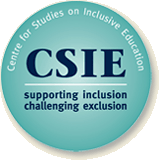
supporting inclusion, challenging exclusion
The UNESCO Salamanca Statement
in a nutshell
This statement calls on the international community to endorse the approach of inclusive schools by implementing practical and strategic changes
Adoption
Adopted by the World Conference on Special Needs Education: Access and Quality (Salamanca, Spain, 7-10 June 1994).
This report from the UN’s education agency calls on the international community to endorse the approach of inclusive schools by implementing practical and strategic changes.
In June 1994 representatives of 92 governments and 25 international organisations formed the World Conference on Special Needs Education, held in Salamanca, Spain. They agreed a dynamic new Statement on the education of all disabled children, which called for inclusion to be the norm. In addition, the Conference adopted a new Framework for Action, the guiding principle of which is that ordinary schools should accommodate all children, regardless of their physical, intellectual, social, emotional, linguistic or other conditions. All educational policies, says the Framework, should stipulate that disabled children attend the neighbourhood school 'that would be attended if the child did not have a disability.'
Education for all
The Statement begins with a commitment to Education for All, recognising the necessity and urgency of providing education for all children, young people and adults 'within the regular education system.' It says those children with special educational needs 'must have access to regular schools' and adds:
Regular schools with this inclusive orientation are the most effective means of combating discriminatory attitudes, creating welcoming communities, building an inclusive society and achieving education for all; moreover, they provide an effective education to the majority of children and improve the efficiency and ultimately the cost-e ffectiveness of the entire education system.
Call to governments
The World Conference went on to call upon all governments to:
- give the 'highest policy and budgetary priority' to improve education services so that all children could be included, regardless of differences or difficulties.
- 'adopt as a matter of law or policy the principle of inclusive education' and enrol all children in ordinary schools unless there were compelling reasons for doing otherwise.
- develop demonstration projects and encourage exchanges with countries with inclusive schools.
- ensure that organisations of disabled people, along with parents and community bodies, are involved in planning decision-making.
- put greater effort into pre-school strategies as well as vocational aspects of inclusive education.
- ensure that both initial and in-service teacher training address the provision of inclusive education.
Inclusive schooling
The Statement also calls on the international community to endorse the approach of inclusive schooling and to support the development of special needs education as an integral part of all education programmes. In particular it calls on UNESCO, UNICEF, UNDP and the World Bank for this endorsement.
It asks for the United Nations and its specialised agencies to 'strengthen their inputs for technical co-operation' and improve their networking for more efficient support to integrated special needs provision. Non-governmental organisations are asked to strengthen their collaboration with official national bodies and become more involved in all aspects of inclusive education.
As the UN agency for education, UNESCO is asked to:
- ensure that special needs education forms part of every discussion dealing with education for all.
- enhance teacher education in this field by getting support from teacher unions and associations.
- stimulate the academic community to do more research into inclusive education and disseminate the findings and the reports.
- use its funds over the five-year period, 1996-2001, to create an expanded programme for inclusive schools and community support projects, thus enabling the launch of pilot projects.
Equalisation of opportunity
The Framework for Action says 'inclusion and participation are essential to human dignity and to the enjoyment and exercise of human rights.' In the field of education this is reflected in bringing about a 'genuine equalisation of opportunity.' Special needs education incorporates proven methods of teaching from which all children can benefit; it assumes human differences are normal and that learning must be adapted to the needs of the child, rather than the child fitted to the process. The fundamental principle of the inclusive school, it adds, is that all children should learn together, where possible, and that ordinary schools must recognise and respond to the diverse needs of their students, while also having a continuum of support and services to match these needs. Inclusive schools are the 'most effective' at building solidarity between children with special needs and their peers. Countries with few or no special schools should establish inclusive – not special – schools.
Page last updated: Wednesday 18 November 2020